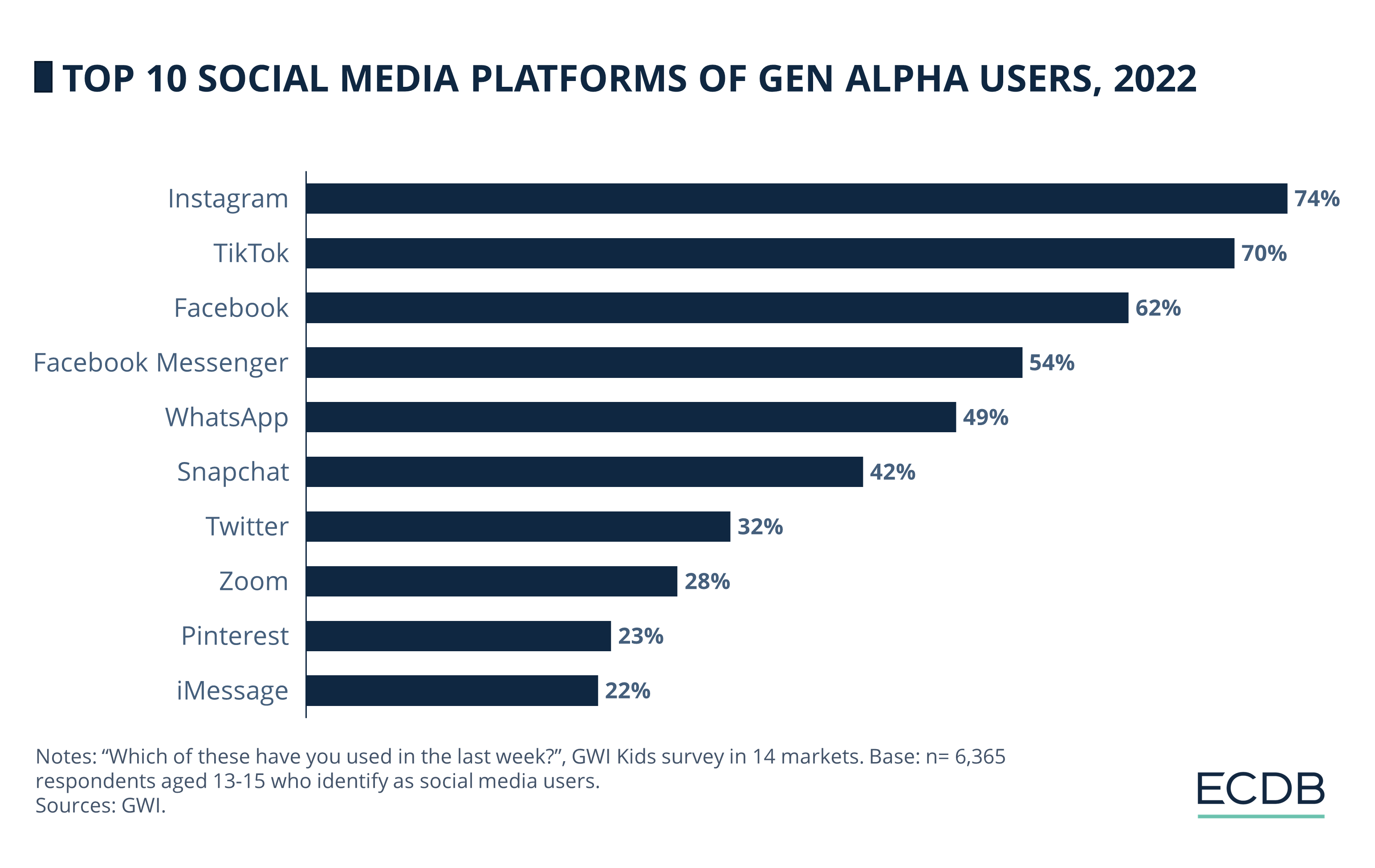
Millennial Parents and Their Gen Alpha Kid Influencers

Kids Dream Big
While working in education, I learned that many kids dream of being social media influencers. Most millennials remember influencers as people we could relate to on early MySpace, YouTube, or Instagram. The landscape and definition of influencers have drastically changed since. Modern influencers are social media superstars who are far from relatable with large followings, luxurious lifestyles, and brand sponsorships similar to celebrities in Hollywood. Realistically not everyone will be an influencer, but we can help our kids develop skills and experience by leveraging their aspirations toward various interests that can help them get closer to their goals and achieve more than they initially think.

The Rise of Gen Alpha Influencers
Gen Alpha is notoriously known as the iPad Kids. They are the first generation to be raised with smart devices and internet access in their childhood. They were exposed to content designed to stimulate, engage, and influence sales at an early age. Many of them aspire to be like the influencers they see online.
One of the first kid influencers is Ryan Kaji. His YouTube show, Ryan’s World, is famous for toy reviews. Ryan wanted to be like other toy review kids he saw on YouTube so his parents helped turn his dream into reality by uploading videos of him reviewing his toys. The result was one of the first and most successful kid influencers on YouTube with over 37 million subscribers since creating the channel in 2015. Over time, Gen Alpha influencers expanded to Instagram and TikTok to capitalize on the popularity of short-format videos.
Gen Alpha's Influence On Their Parents
Gen Alpha has a significant influence on their parents' buying power (mostly millennials). According to GWI’s study, 74% of Gen Alpha use Instagram, and 70% use TikTok. Gen Alpha are more likely to be influenced by content they see online. With these demographics, influencer marketing has greatly increased with kid influencers gaining big brand sponsorships. According to a DKC report, 95% of Gen Alpha parents they surveyed learn about new brands or services through their kids, and half the time their kids’ opinions influence their buying decisions. One of the drawbacks of Gen Alpha’s influence on and from the internet is that they might see things online as the be-all and end-all, with limited experience, to contrast things with reality offline. While the rise of Gen Alpha influencers presents beneficial opportunities for both kids and marketers, it has its fair share of risks for young content creators and their families.

The Benefits and Risks For Gen Alpha Kid Influencers
The initial attraction to becoming a social media influencer is the perceived fame, glorified lifestyle, and attention. The practical benefits for our kids are fostering their creativity, learning entrepreneurial skills, and building self-confidence at a young age. To put things into perspective, Ryan Kaji earned roughly $30 million in 2023 according to Forbes. Ryan became Forbes's youngest on the top earners' list at age 6 in 2017 all from sharing his passion to review toys. Smaller influencers reap the rewards from sponsorships and endorsement programs on Instagram or TikTok. Gen Alpha influencers have very lucrative opportunities, but those raise risks of exposure to predators, child exploitation for profits, and limited child development.

We’ve seen the negative effects of Hollywood on child stars numerous times. Those risks are the same for kid influencers with additional factors. Unlike Hollywood stars, influencers are easier to connect with compared to the closed social bubbles in Hollywood. As great as connecting with influencers is, there is a high risk of predators following kid influencers. According to a Wall Street Journal article, a pre-teen influencer had a 92% following of creepy adult males. Her account is managed by her mother who had to moderate numerous explicit comments and messages. This is just a glimpse of the interactions kid influencers might face. The mother of this story faced accusations of using her daughter for profit, but quickly dismissed them by explaining that she only manages the account per platform rules and helps guide her daughter. All creative freedom and what happens to the money are her daughter’s decisions. This demonstrates the importance of our involvement and guidance for our kids' social media activities.
Guiding Our Kids’ Digital Dreams
When our kids express interest in being an influencer or creating content there are things we can do to help them on their journey. We must ensure they have a balanced life by implementing healthy screen time habits. We can encourage outdoor activities, in-person interactions, and hobbies offline. We want them to be able to distinguish how things are in reality vs how they are constructed to be picture-perfect online. Real-world experience will allow them to use their critical thinking skills to assess what they experience firsthand rather than only knowing what they see online. These experiences will enrich what they can implement in their content should they pursue online content creation.

Photography, writing, and various arts are some activities offline that they can benefit from. These will help develop their creative abilities so they can deliver content with strong attributes unique to them. Additionally, having diverse interests outside social media will provide various subjects for them to explore and share in their content.
A non-negotiable is to educate them on privacy and online safety. Yes, the internet can be a great way to connect with others around shared interests, but stranger danger is very much a thing that our kids need to be aware of to navigate safely and protect themselves online.
Most importantly we need to support their online interests within what’s reasonable and age appropriate. This benefits both us parents and our kids in their online journeys. We can stay informed about their online activities by being involved with interest while they build their skills and talents around their social media content creation. It’s a way for us to serve our duty as parents to check up on our kids without creating awkward tensions and still allow them space to thrive on their own.
Many of us are the millennials who built the modern internet landscape our kids explore. It’s our responsibility to improve on the shortcomings of our early online experiences so our kids can develop and gain success with the use of the technology given to them at a young age.




















